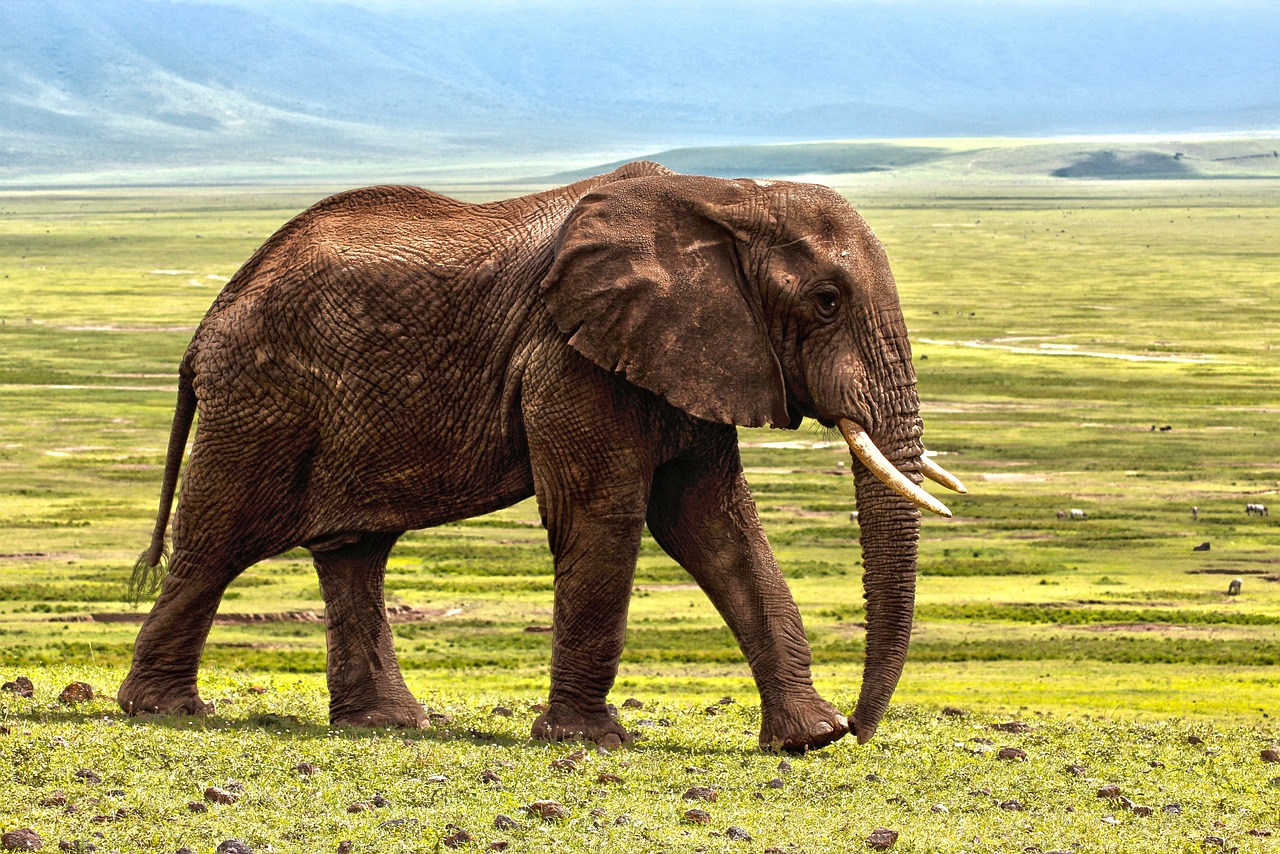Bringing the Elephant INTO the Room at COP28

Image by laurent marx from Pixabay
A new idea is taking hold at COP28: that wild animals can help stabilise the global climate.
A coalition of 18 civil society organisations, researchers in top Universities, and policy actors issue an open letter calling for the protection and restoration of wild ecosystems to be at the heart of global climate policy and action. A range of events are taking place at COP28 – the 28th meeting of the UN Framework Convention on Climate Change (UNFCCC) – to set out how to implement this idea.
Karl Wagner, MD of the Global Rewilding Alliance, said: “For too long, policymakers have ignored wild, functional nature with an abundance of wildlife species as a climate solution. In fact, wild animals and their interaction with their environment can be considered as a missing link between biodiversity and climate. Bringing back functional ecosystems is one of the quickest, cheapest and most effective means of stabilising the global climate.”
Extensive research is showing that rewilding viable populations of wild animals can enable terrestrial and marine ecosystems to absorb vast amounts of carbon. This emerging scientific area is known as Animating the Carbon Cycle. During 2023, this science has become ever stronger, with the publication of several new studies in some of the world’s top scientific journals (see “Key Studies” below).
Professor Oswald Schmitz of Yale University and speaker at the COP28 events said: “Rewilding (protecting and enhancing) populations of key wildlife species across the world could absorb carbon and reduce emissions by billions of tonnes annually – an amount that rivals or surpasses the top five mitigation measures identified by the IPCC.”
Andrew Tilker of Re:Wild, co-author of one of the studies and speaker at one of the events, said: “Our study shows that the protection and restoration of the populations of just nine species/groups – marine fish, whales, sharks, grey wolf, wildebeest, sea otter, musk ox, African forest elephants, and American bison – could collectively facilitate the capture of more than 95% of the amount needed every year to meet the global target of removing 500 GtCO2 from the atmosphere by 2100.”
Despite these key findings, rewilding and the role of wild animal populations and restored ecosystems do not appear as an option in either the IPCC nor the UNFCCC discussions.
Chris Butler-Stroud, CEO of Whale and Dolphin Conservation and co-host of one of the events, said: “Whales have remained our steadfast allies in the fight against climate breakdown. The science now tells us we need to re-whale the ocean and enable them to do what they do amazingly well — keep the ocean healthy. If we adopt this science into climate policy, we know that populations of whales and dolphins can recover. A stabilising climate is achievable if we simply make the right choices.”
Simon Addison of IFAW said: “Only by joining hands with nature can we stabilise the climate for humanity to avoid catastrophic climate change. Wild animals are our most important allies in doing this, so we must help them bounce back by giving them room to roam. Right now, animals are nowhere on the climate agenda, but we are here to change that.”
Mark Halle, Chair of the Global Rewilding Alliance and speaker at one of the events, said: “The time has come to embrace a holistic, integrated systems perspective that explicitly recognises the role of biodiversity — especially animal diversity — as the practical, quick and cost-effective linkage between ecosystem carbon and climate change.”
Key studies:
- Scientific Paper In Nature Climate Change (March 2023)
- Briefing: Rewilding, A Serious Candidate For Stabilising The Global Climate (2023)
- Full report: Animating the Carbon Cycle (2022)
Anchored in the Global Charter for Rewilding the Earth: Advancing nature-based solutions to the extinction and climate crises, the Global Rewilding Alliance was founded by The Wild Foundation and Re:wild in 2020. The network of currently 130+ organisations work across Africa, Asia, Australia, Europe, Latin America, North America and globally to rewild more than 100 million hectares of land and sea in 70+ countries. Our goal for 2030 is that rewilding has become mainstream in science, policy and practice and is recognised globally as being credible, practical and inspiring: a key approach for people, nature and climate. Learn more at rewildingglobal.org.



While I fully support rewilding and specifically this proposal, it’s not realistic to expect groups of powerful human supremacists like IPCC or UNFCCC to protect wildlife where that protection would require ANY human sacrifices, especially financial ones. Not a surprising result at all, unfortunately.
Since when did wild nature become the solution to the stupidity of the human species in its use of fossil fuels. Animating the carbon cycle is just a selling tool for the continuing exploitation of nature for human needs. Just how far are we going to travel away from the focus of rewilding in ensuring reinstatement of the unfettered self-perpetuation of all of wild nature?